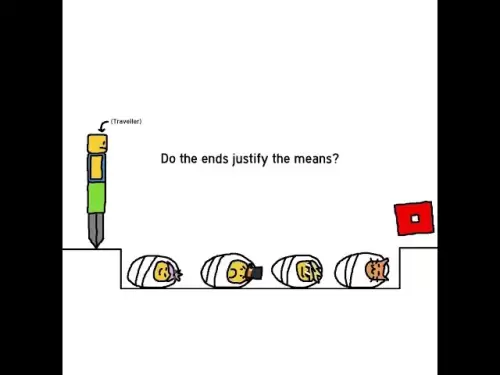-
 Bitcoin
Bitcoin $120400
1.77% -
 Ethereum
Ethereum $3615
7.90% -
 XRP
XRP $3.580
17.84% -
 Tether USDt
Tether USDt $1.001
0.06% -
 BNB
BNB $729.4
1.25% -
 Solana
Solana $179.9
5.04% -
 USDC
USDC $0.0000
0.01% -
 Dogecoin
Dogecoin $0.2311
8.22% -
 TRON
TRON $0.3226
4.04% -
 Cardano
Cardano $0.8490
12.85% -
 Hyperliquid
Hyperliquid $46.45
0.72% -
 Stellar
Stellar $0.4913
8.54% -
 Sui
Sui $4.027
2.00% -
 Chainlink
Chainlink $18.51
11.67% -
 Hedera
Hedera $0.2818
21.51% -
 Avalanche
Avalanche $24.03
7.40% -
 Bitcoin Cash
Bitcoin Cash $508.5
2.90% -
 Shiba Inu
Shiba Inu $0.00001496
3.24% -
 UNUS SED LEO
UNUS SED LEO $8.961
1.83% -
 Toncoin
Toncoin $3.264
3.13% -
 Litecoin
Litecoin $104.6
8.15% -
 Polkadot
Polkadot $4.389
6.11% -
 Uniswap
Uniswap $9.924
10.63% -
 Monero
Monero $337.9
0.49% -
 Pepe
Pepe $0.00001376
2.79% -
 Bitget Token
Bitget Token $4.830
2.46% -
 Ethena USDe
Ethena USDe $1.001
0.05% -
 Dai
Dai $1.000
0.02% -
 Aave
Aave $325.2
1.66% -
 Bittensor
Bittensor $423.7
-0.85%
What does "gas limit" vs "gas price" mean
Understanding gas limit and gas price is crucial for efficient Ethereum transactions, as they determine both cost and speed.
Jul 13, 2025 at 04:00 am
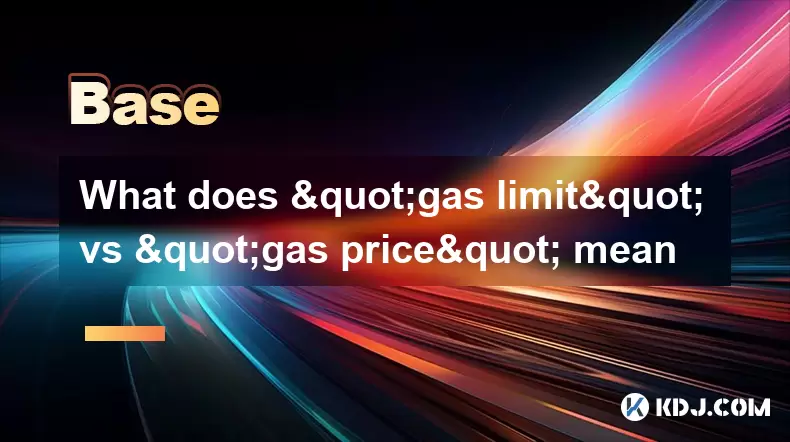
Understanding the Basics of Gas in Blockchain Transactions
In the Ethereum and other EVM-compatible blockchains, every transaction requires computational effort. To ensure that users pay for this computation, a system called gas is used. Gas refers to the unit that measures the amount of computational work required to execute operations like sending tokens or interacting with smart contracts. Two key terms related to gas are gas limit and gas price, which together determine the cost and speed of a blockchain transaction.
Gas Limit refers to the maximum amount of gas you're willing to spend on a transaction.
Gas Price refers to how much you're willing to pay per unit of gas, typically measured in gwei (a subunit of ETH).
These two values must be set correctly to ensure your transaction gets processed efficiently without overpaying.
What Does Gas Limit Mean?
The gas limit is the upper boundary of computational effort you allow for a transaction. It's essentially a safety mechanism. If a transaction exceeds this limit, it will fail, but you'll still pay for the gas consumed up to that point.
For simple transactions like sending ETH from one wallet to another, the required gas is usually around 21,000 units. However, more complex interactions—like deploying or interacting with smart contracts—can require significantly higher gas limits.
If you set the gas limit too low:
- The network may reject your transaction.
- You lose the gas fee paid up to that point.
If you set it too high:
- No extra fees are charged beyond what was actually used.
- It provides a buffer for unexpected complexity.
Here’s how gas limit works step by step:
- When initiating a transaction, you specify the maximum gas units you're willing to spend.
- The Ethereum Virtual Machine (EVM) processes the transaction.
- If execution completes within the gas limit, only the actual gas used is deducted.
- If it runs out of gas during execution, the transaction reverts, and no ETH is transferred.
What Does Gas Price Mean?
Gas price determines how much you're willing to pay per unit of gas. It's usually denominated in gwei, where 1 gwei equals 0.000000001 ETH. This value directly influences how fast miners or validators will pick up your transaction.
Setting a higher gas price makes your transaction more attractive to miners, resulting in faster confirmation times. Conversely, setting a lower gas price can delay processing, especially when the network is congested.
To understand gas price better:
- Base Fee: A dynamically adjusted minimum gas price determined by network demand.
- Priority Fee (Tip): An optional additional fee to incentivize miners to prioritize your transaction.
You calculate total transaction cost using this formula:
Total Cost = Gas Used × (Base Fee + Priority Fee)When choosing a gas price:
- Use tools like gas estimators provided by wallets like MetaMask.
- Consider current network congestion levels.
- Decide whether speed or cost-efficiency is more important.
How Do Gas Limit and Gas Price Work Together?
While gas limit defines how much work can be done, gas price dictates how quickly it will be done. These two parameters combine to determine both the success and speed of a transaction.
Let’s break down their interaction:
- If you set a high gas limit and high gas price, your transaction will likely go through quickly, even if it’s complex.
- If you set a low gas limit and high gas price, your transaction might still fail due to insufficient gas, even though it’s prioritized.
- If you set a high gas limit and low gas price, it might take longer to confirm, but at least it has enough gas to complete.
- If both are low, your transaction may not get picked up at all and could remain pending indefinitely.
Each transaction requires balancing these two factors:
- For basic transfers, default settings often suffice.
- For complex contract interactions, manual adjustments are necessary.
Wallets usually offer auto-calculation features, but understanding how they work helps avoid unnecessary costs or failed transactions.
Common Mistakes When Setting Gas Limit vs Gas Price
Many users run into issues due to misunderstanding or misconfiguring these parameters. Here are some common pitfalls:
- Underestimating gas limit for complex contract interactions, leading to reverted transactions and lost fees.
- Overestimating gas limit unnecessarily, which doesn’t cost more but creates confusion.
- Setting gas price too low during busy times, causing long delays or unprocessed transactions.
- Setting gas price too high when urgency isn’t needed, leading to overpayment.
Avoiding these mistakes involves:
- Checking recent gas prices before sending.
- Using wallet suggestions as a starting point.
- Manually adjusting based on your specific needs.
Some wallets show historical data and recommendations. Always review them carefully before confirming.
Frequently Asked Questions
Q: Can I change the gas price after sending a transaction?
A: Yes, if the transaction is still pending, you can speed it up by resubmitting with a higher gas price using the same nonce.
Q: What happens if my gas limit is too high?
A: Nothing negative happens—you’re only charged for the actual gas used. High limits act as a buffer for unexpected computation.
Q: Why do gas prices fluctuate so much?
A: They depend on network demand. During high activity, users compete for block space, pushing prices up.
Q: How does EIP-1559 affect gas pricing?
A: EIP-1559 introduced a base fee that adjusts automatically and allows users to add a tip for priority. This makes gas estimation more predictable.
Disclaimer:info@kdj.com
The information provided is not trading advice. kdj.com does not assume any responsibility for any investments made based on the information provided in this article. Cryptocurrencies are highly volatile and it is highly recommended that you invest with caution after thorough research!
If you believe that the content used on this website infringes your copyright, please contact us immediately (info@kdj.com) and we will delete it promptly.
- Bitcoin Holdings and the Smarter Web: A Match Made in Digital Heaven?
- 2025-07-18 12:10:12
- Bitcoin, MSTR & Saylor's Strategy: A Winning Trifecta?
- 2025-07-18 08:30:13
- Bitcoin Mortgages Down Under: A New Wave in Australian Homeownership?
- 2025-07-18 08:50:12
- Cryptocurrencies, Bitcoin, and the Next Wave: What's Coming?
- 2025-07-18 08:50:12
- Maharashtra Government Nurses Launch Indefinite Strike: A Healthcare Crisis?
- 2025-07-18 04:30:13
- Hilbert Group, Syntetika, and Tokenization: Bridging DeFi and Institutional Finance
- 2025-07-18 05:30:12
Related knowledge
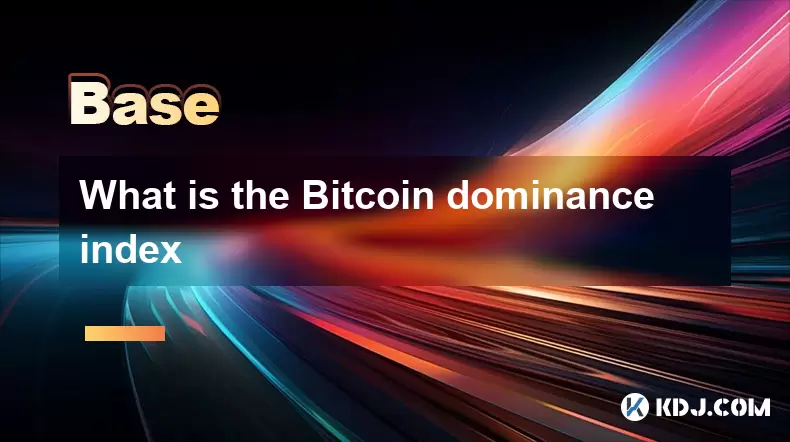
What is the Bitcoin dominance index
Jul 12,2025 at 10:35pm
Understanding the Bitcoin Dominance IndexThe Bitcoin Dominance Index, often abbreviated as BTC.D, is a metric used to measure Bitcoin's market capital...
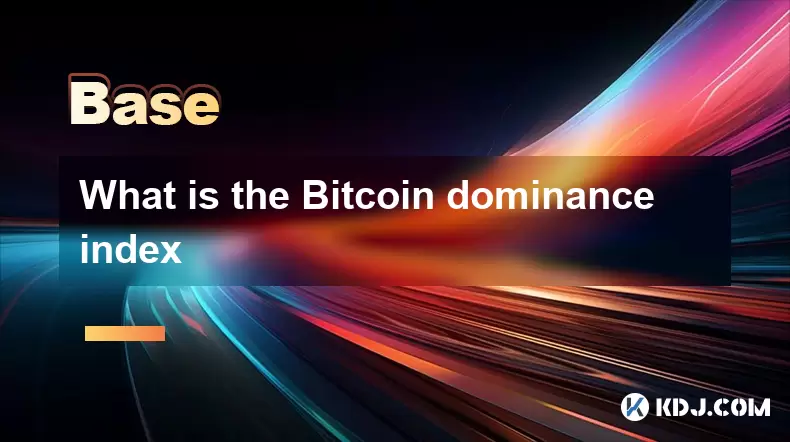
What is the Bitcoin dominance index
Jul 11,2025 at 04:29am
What is the Bitcoin Dominance Index?The Bitcoin Dominance Index is a metric used to gauge Bitcoin's market capitalization relative to the total market...
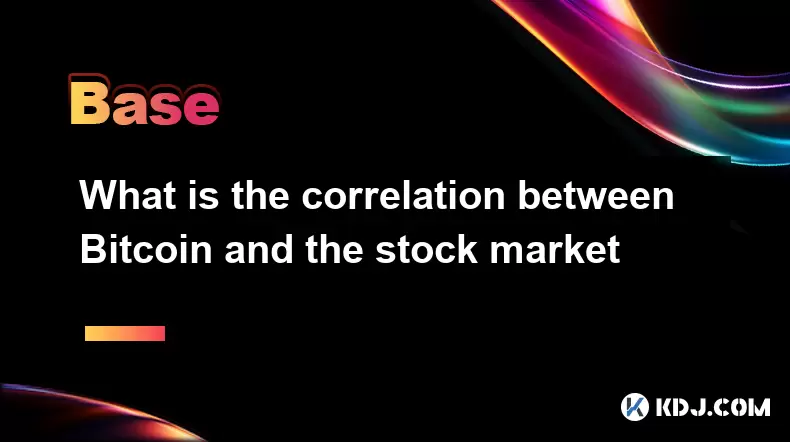
What is the correlation between Bitcoin and the stock market
Jul 18,2025 at 04:56am
Understanding the Correlation Between Bitcoin and the Stock MarketThe correlation between Bitcoin and the stock market has become a topic of increasin...
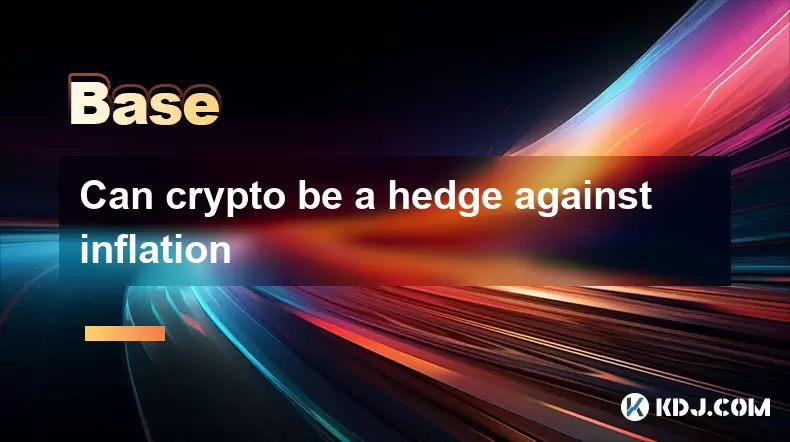
Can crypto be a hedge against inflation
Jul 14,2025 at 12:21am
Understanding the Concept of Hedging Against InflationInflation refers to the general increase in prices and fall in the purchasing value of money ove...
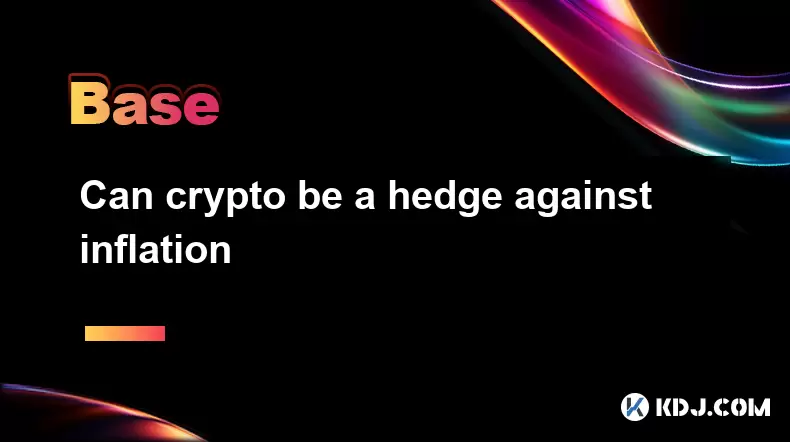
Can crypto be a hedge against inflation
Jul 12,2025 at 12:07pm
Understanding the Role of Blockchain in Decentralized Finance (DeFi)Blockchain technology serves as the backbone of decentralized finance, offering a ...
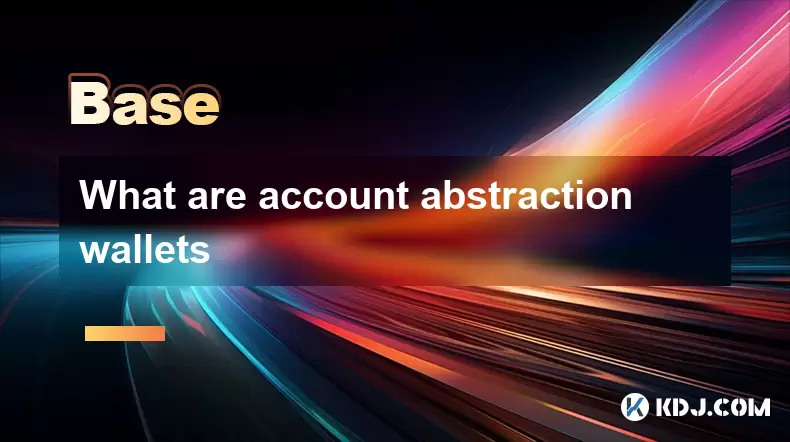
What are account abstraction wallets
Jul 13,2025 at 01:43am
Understanding the Concept of Account AbstractionAccount abstraction is a term frequently used in the Ethereum ecosystem, particularly within discussio...

What is the Bitcoin dominance index
Jul 12,2025 at 10:35pm
Understanding the Bitcoin Dominance IndexThe Bitcoin Dominance Index, often abbreviated as BTC.D, is a metric used to measure Bitcoin's market capital...

What is the Bitcoin dominance index
Jul 11,2025 at 04:29am
What is the Bitcoin Dominance Index?The Bitcoin Dominance Index is a metric used to gauge Bitcoin's market capitalization relative to the total market...

What is the correlation between Bitcoin and the stock market
Jul 18,2025 at 04:56am
Understanding the Correlation Between Bitcoin and the Stock MarketThe correlation between Bitcoin and the stock market has become a topic of increasin...

Can crypto be a hedge against inflation
Jul 14,2025 at 12:21am
Understanding the Concept of Hedging Against InflationInflation refers to the general increase in prices and fall in the purchasing value of money ove...

Can crypto be a hedge against inflation
Jul 12,2025 at 12:07pm
Understanding the Role of Blockchain in Decentralized Finance (DeFi)Blockchain technology serves as the backbone of decentralized finance, offering a ...

What are account abstraction wallets
Jul 13,2025 at 01:43am
Understanding the Concept of Account AbstractionAccount abstraction is a term frequently used in the Ethereum ecosystem, particularly within discussio...
See all articles


























